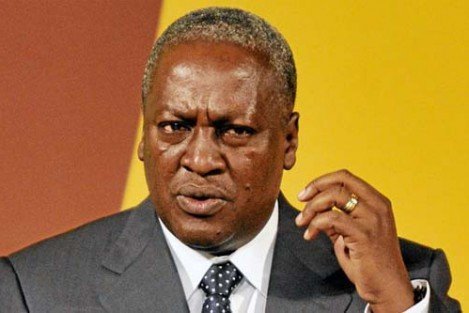The Government of Ghana will Wednesday sign a $1-billion deal with US Energy firm, General Electric (G.E) for the production of 1,000 Megawatts of power.
The thermal project, named Ghana 1,000, is expected to be completed within five years.
The first phase of the project is expected to supplant the country’s energy supply by 300 Megawatts by the third quarter of 2016. The second phase will bring on board the remaining 700 Megawatts in 2018.
In a meeting with the Global Chairman of GE Jeffrey Immelt, President John Mahama said: “Even though we call it Ghana 1,000, the power will be a bit above 1,000.”
He said: “This will be the single largest injection of power into our transmission grid in history.”
“It will be bigger than total power from the Akosombo hydro-electric power plant,” the President said.
Immelt said GE was content with the partnership with Ghana.
The signing of the Ghana 1,000 project deal comes on the heels of the signing of a $7-billion deal between ENI and Vitol on Tuesday January 27, 2015 to produce 1,200 Megawatts of power.
The deal with the Italian oil giant, ENI, will supply 180 million cubic feet of gas for power production.
Ghana is currently reeling under a gradually worsening power crisis, which state power transmitter Ghana Grid Company (GRIDco) has warned would get worse.
The country has a production shortfall of between 500 and 600 Megawatts due to Nigeria’s failure to supply gas to Ghana from the West Africa Gas Pipeline (WAGPco), to power thermal plants within the Tema enclave.
The low water level in the country’s main hydroelectric power station, Akosombo Dam, which contributes about 37 percent of Ghana’s power supply as well as in the Bui and Kpong Dams have also worsened the situation.
The ENI deal is therefore expected to supplant gas supply to Ghana for power production through Ghana’s thermal plants.
The sealing of the contract came after a government negotiating team made up of officials of the Ministry of Energy & Petroleum, Ministry of Finance, the Ghana National Petroleum Corporation (GNPC) and ENI Exploration, operators of the offshore Cape Three Points (OCTP) block, concluded talks to allow ENI commence production of gas.
President Mahama last week told Ghanaians in Germany while on a state visit that rather than relying on Nigeria’s unreliable gas supply, Ghana must focus on looking “at our own gas reserves and see how we can produce enough gas to be able to ensure energy security for Ghana,” since the country has a lot of gas potential.
Apart from the ENI deal, the President said: “We potentially can get a 150 standard cubic feet from the Jubilee Field. We are developing the TEN field, which will come on stream in 2016 and that again can provide us between 50 and 80 standard cubic feet.”
“…So going forward, we are looking at about 300 and 350 million standard cubic feet which will be very important in terms of generating power and ensuring energy security for us,” Mr Mahama said.
















